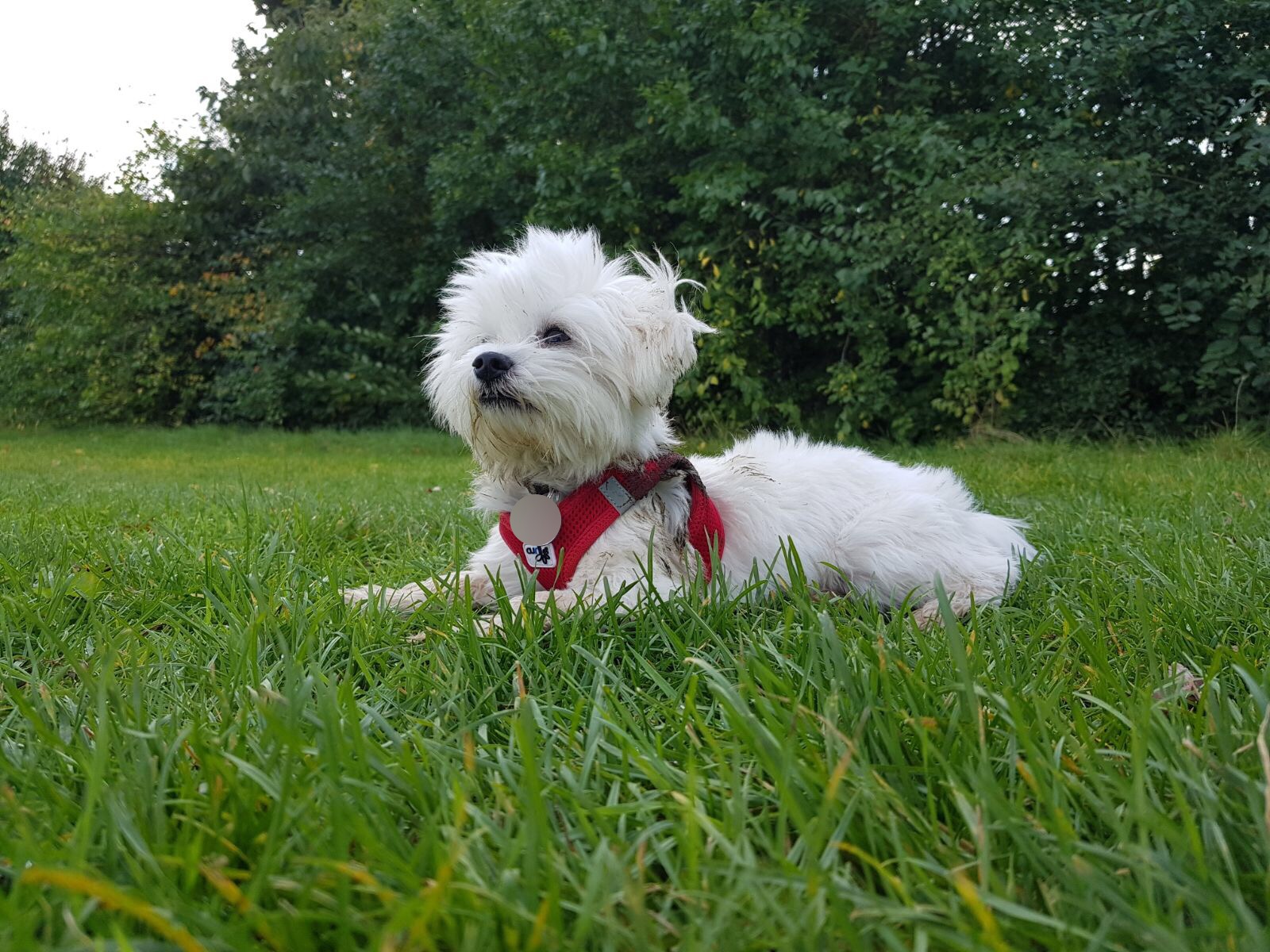Obelisk Posture, Mediterranean Moray & Missing Casper
Male Violet Dropwing (Trithemis annulata) | Credit: Talita Bateman
I don't think it's an exaggeration to say that this trip has given me a new appreciation for entomology. Insects are absolutely fascinating. Whilst checking a thriving Levant Water Frog (Pelophylax bedriadae) population in the north-west area of Ikaria, I suddenly noticed the incredible behaviour of some of the dragonflies around the natural pools. They were doing what looked like an impressive handstand and it got me thinking, why? What's the purpose of the handstand? Why were so many of them taking the same position at that exact time? Was it part of a courtship ritual? Were they preparing for something? I just didn't know and I couldn't quite rest until I figured out. So I did what I do best - I researched.
I am a regular reader of Gil Wizen's blog but it suddenly dawned on me that I hadn't actually read any posts about dragonflies. In fact, I suddenly realised that despite encountering thousands of dragonflies on my herpetological outings, I had never read much about them other than the limited exposure that you get when studying Biology. Well, it was time to change that. I got back home, transferred the photos and data collected that day to my trusted external hard drive, made myself a cup of tea and spent a good few hours reading about them. It was also the perfect opportunity to try identifying the dragonflies I had managed to photograph.
Female Violet Dropwing (Trithemis annulata) | Credit: Talita Bateman
It was during this reading session that I came across a blog post by The Dragonfly Woman which mentioned the term 'obelisk posture' - a term that sounded a bit familiar to me. And that's when the behaviour of the dragonflies at the time began to make sense. Ah, the beauty of finally understanding something - even if only partially. It's my favourite thing about science - that nagging feeling of needing to know, the drive to understand followed by a sudden rush of pleasure at understanding something only to then realise that you now have even more questions. It's magical really.
Mediterranean Moray (Muraena helena) | Photograph by Jason Flower
When I captured these shots of the dragonflies in the somewhat modified obelisk posture, it was very hot. Despite it nearing sundown, the air around us still made it feel like we were in an oven and the sunrays were still pretty strong. Although the obelisk posture seems to be used by different species for a multitude of purposes, given the slight inclination of the Roseate Skimmer shown above and the position of the sun at the time, I am inclined to believe that they were indeed trying to regulate their body temperature by reducing the area directly exposed to solar radiation.
Looking for the same sort of relief from the sun as the dragonflies, I headed down to the beach for a swim armed with my goggles and flippers. While the sun was slowly going down above the water, I went looking for whatever I could still see at the bottom of the sea. Usually, that entails a school of small fish or a crab or two. This time, however, I was rewarded with what looked very much like a juvenile Mediterranean Moray (Muraena helena) Eel. Although it looked less than impressed with my attentions, I was thrilled to see it. I mean, what's more exciting than unexpectedly seeing what looks like a sea snake for a herpetology fanatic?
Heading back to our temporary home, I started thinking about how lucky I was to be able to see such amazing wildlife in the flesh. I also started thinking about my own little guys back home and just how much I was missing them. So I dropped Tyler a message to check how things were going. Tyler is looking after Casper for us while we are here and kindly sent me a couple of photos and videos of our little guy having fun and enjoying his little break from us. It filled me with pride, joy and longing. Not long to go now and I'll be (weirdly gladly) having to deal with a poop stained harness myself.
Casper after a walk in the park and rolling in poop | Credit: Tyler Clark








